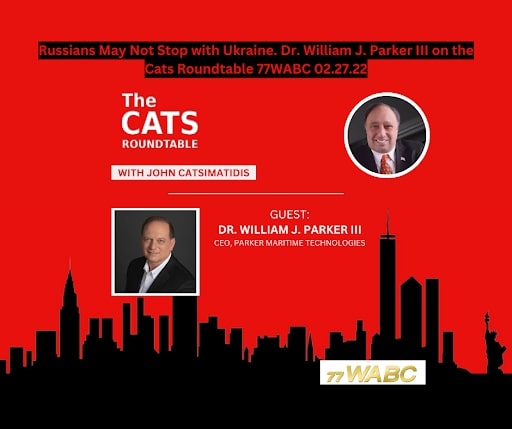Russia’s Aggression: Assessing the Ukrainian Crisis with Dr. William J. Parker III.
In this episode of the Cats Roundtable Show, Dr. William J. Parker III joined host John Catsimatidis to discuss the escalating crisis between Russia and Ukraine. With Dr. Parker’s extensive experience, including 37 years in the Navy and leadership roles, this conversation sheds light on the critical situation unfolding in Eastern Europe. This blog post provides a summary of their insightful discussion.
A Historical Perspective
The conversation begins with a poignant reminder of history, harking back to a pivotal moment in 1994 when President Clinton, President Boris Yeltsin, and Ukrainian leaders signed a nuclear disarmament agreement. Under this treaty, Ukraine relinquished approximately 1,800 nuclear weapons, making them the third-largest nuclear-armed country at the time. In return, the United States and Russia committed to ensuring Ukrainian sovereignty and territorial integrity.
Current Crisis in Ukraine
Fast forward to the present, and the situation in Ukraine has taken a dire turn. Dr. Parker expresses his dismay at the unfolding events, highlighting that Russia’s military actions directly contradict the 1994 agreement and the assurances given to Ukraine. This has raised concerns about nuclear proliferation on a global scale, as countries may no longer feel secure without nuclear capabilities.
Missed Opportunities for Peace
Dr. Parker points out a missed opportunity to prevent the conflict. A few months ago, when Russia began amassing troops on the border with Ukraine, decisive action could have been taken. The United States and NATO could have declared Ukraine a NATO ally, signaling that any aggression against Ukraine would be met with a strong response. Unfortunately, this opportunity was not seized, leading to the current crisis.
Chernobyl’s Significance
The conversation delves into the geographical importance of Ukraine, with Dr. Parker highlighting that Chernobyl, the site of the infamous nuclear disaster, is located in Ukraine. The implications of Russian control over this area are substantial and complex.
Russia’s Motives
John Catsimatidis inquires about Russia’s underlying motives in this crisis. Dr. Parker explains that Russia seeks access to fertile land and waterways, emphasizing the importance of these resources for food production and access to water routes. While financial interests may also play a role, it’s essential to recognize the multifaceted reasons behind Russia’s actions.
Global Economic Impact
The potential consequences of Russia’s actions on the global economy are discussed. Dr. Parker acknowledges that while there will be repercussions, the Russian and Ukrainian people are likely to bear the brunt of the suffering. He also underscores the need for the United States to reassess its energy independence and production methods to reduce vulnerabilities.
Lessons from Afghanistan
Drawing parallels with the situation in Afghanistan, Dr. Parker expresses concerns about the possibility of American-made equipment falling into the hands of potential adversaries once again. This underscores the importance of safeguarding sensitive assets and technology.
Addressing Reliance on Overseas Production
Dr. Parker advocates for a reevaluation of the United States’ reliance on overseas production. He suggests the development of local facilities to manufacture essential goods, reducing the country’s dependence on imports, and enhancing self-sufficiency.
Climate Change and Local Production
Dr. Parker also highlights the potential environmental benefits of local production. By reducing the need to transport goods across the globe, the United States could significantly decrease greenhouse gas emissions, contributing to climate change mitigation.
Dr. William J. Parker III’s expertise and insights provide valuable context to the evolving crisis in Ukraine. The conversation underscores the complexities of international relations, the need for decisive action, and the importance of reevaluating American policies to enhance national security and sustainability. As the situation continues to develop, Dr. Parker’s analysis offers a comprehensive perspective on the challenges and opportunities facing the United States and the world.





